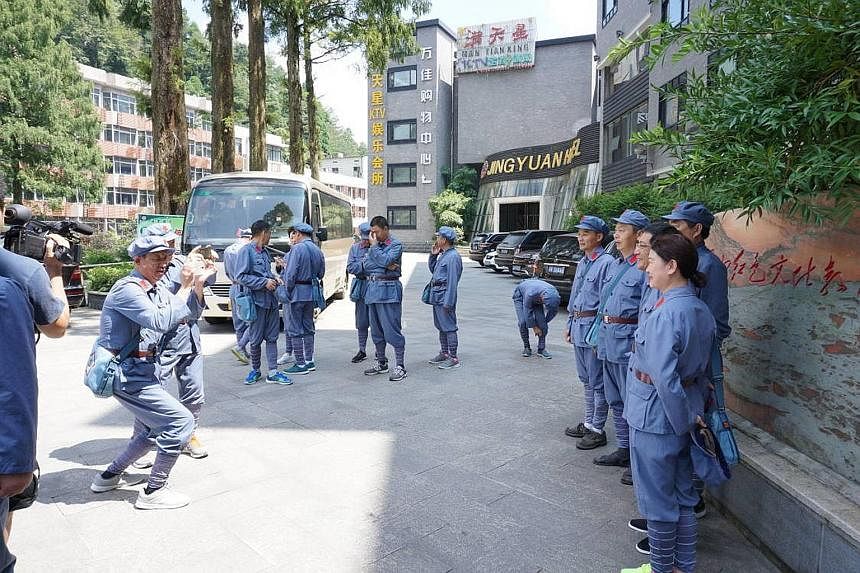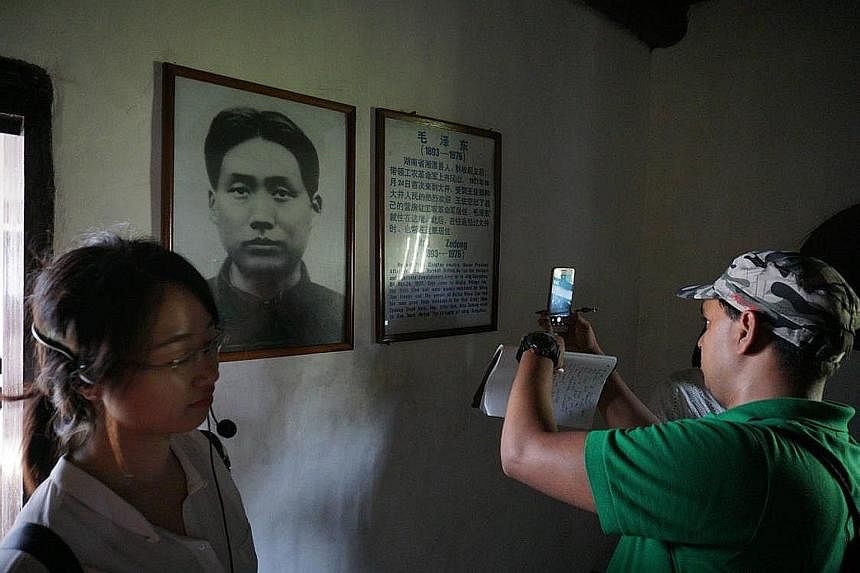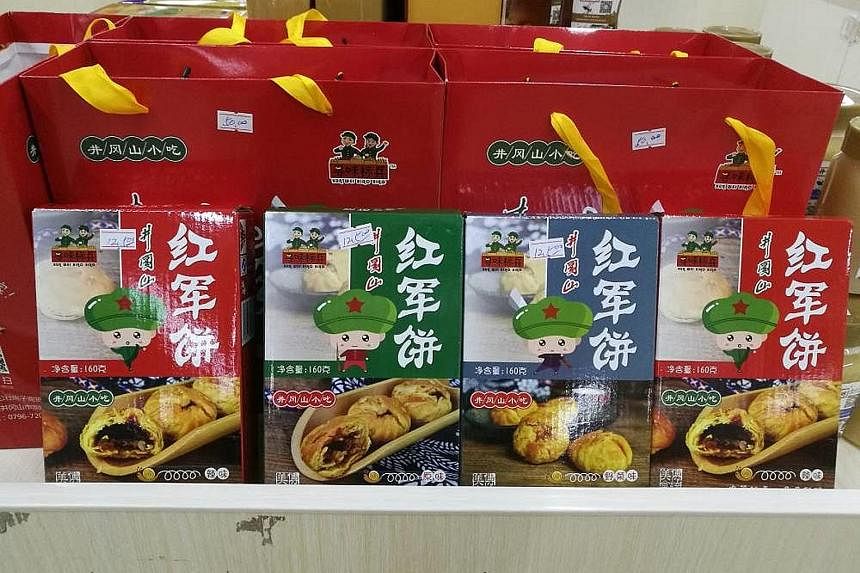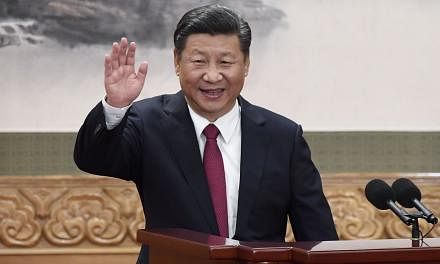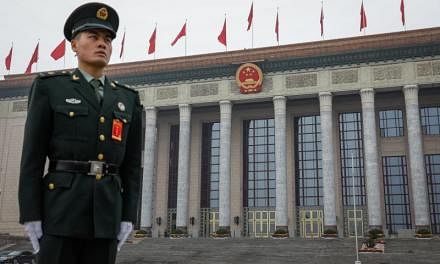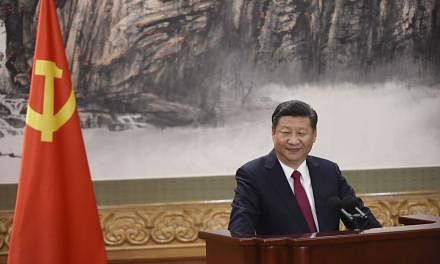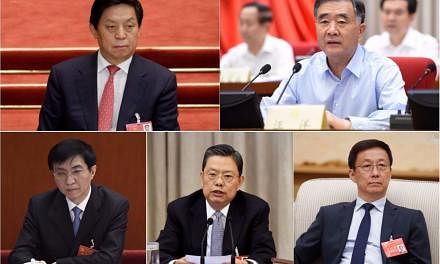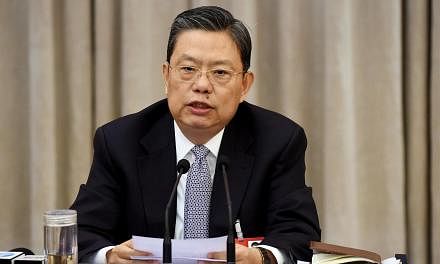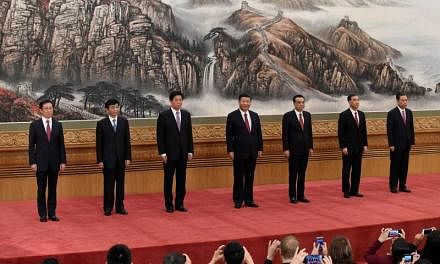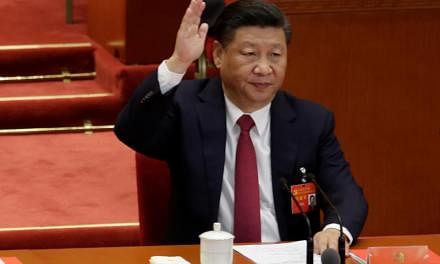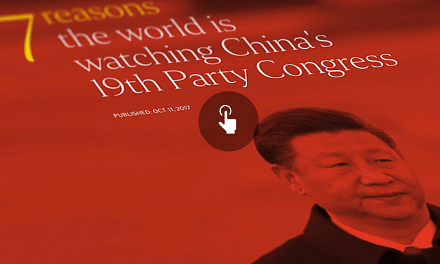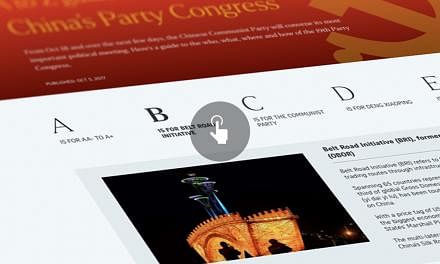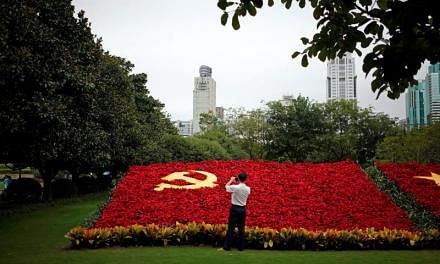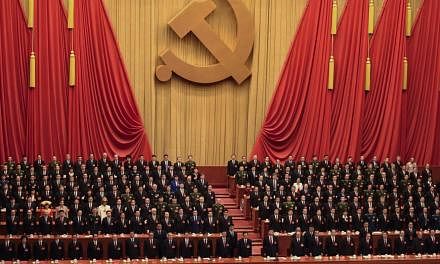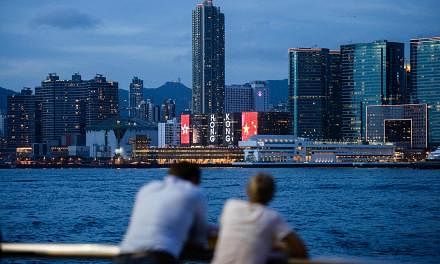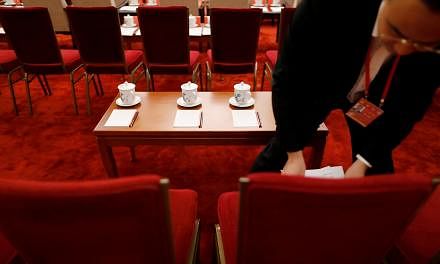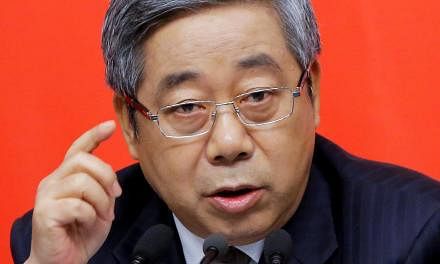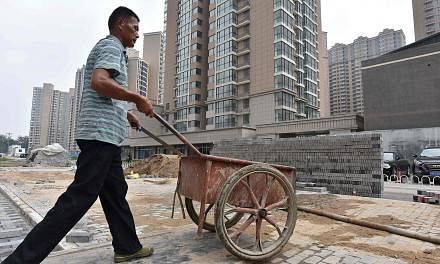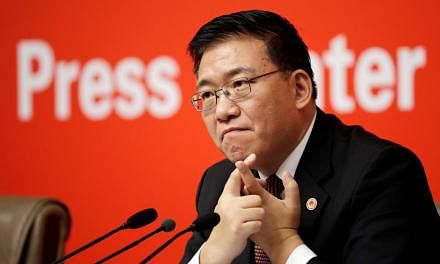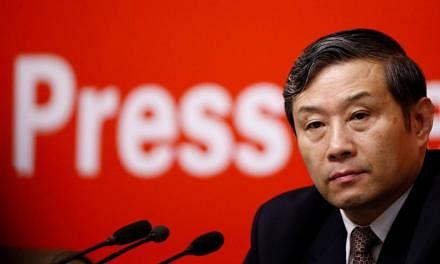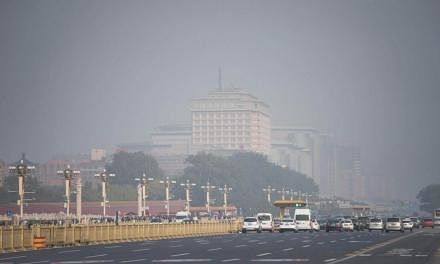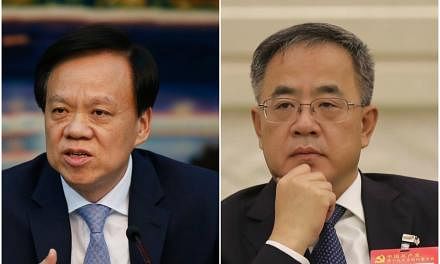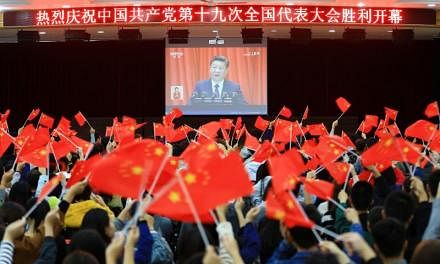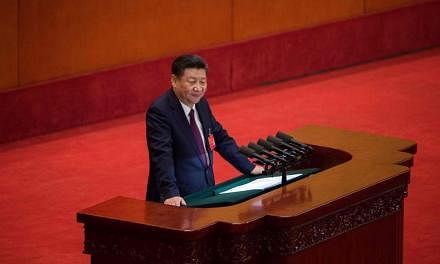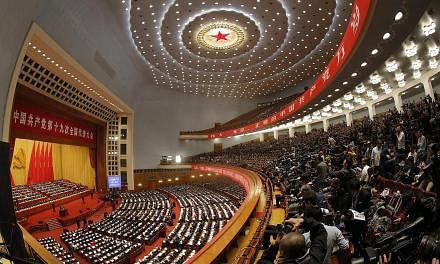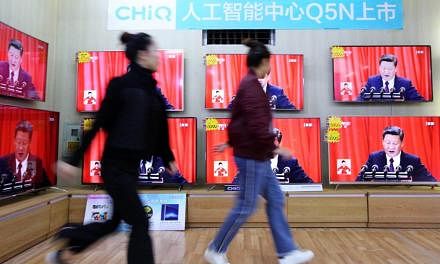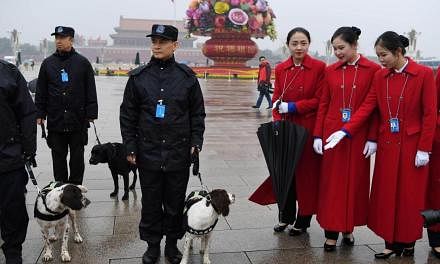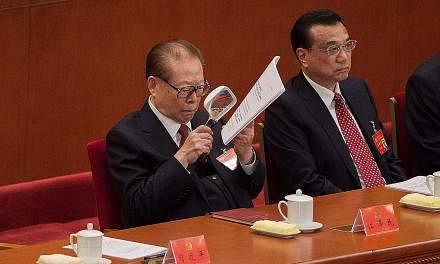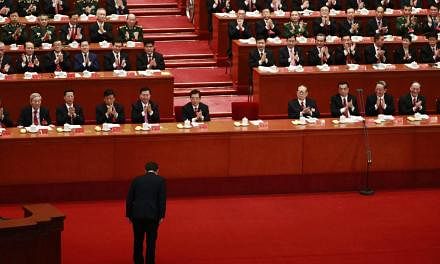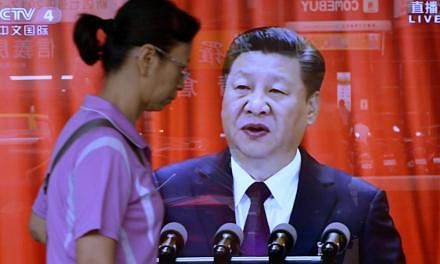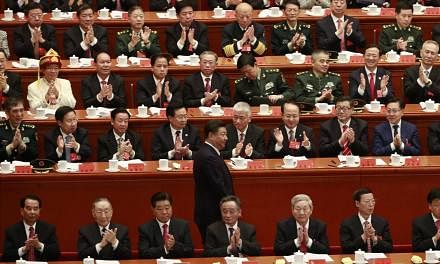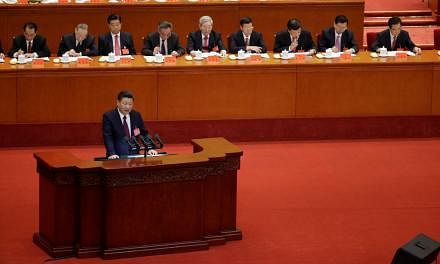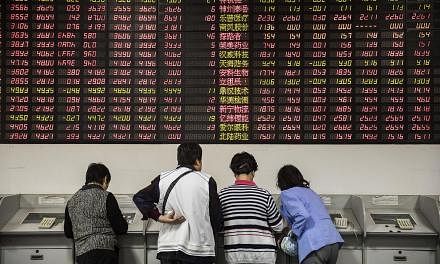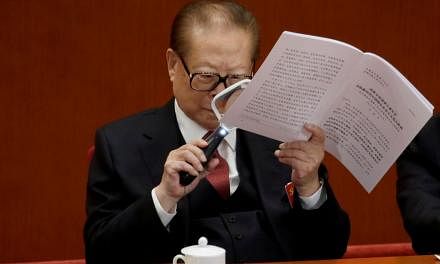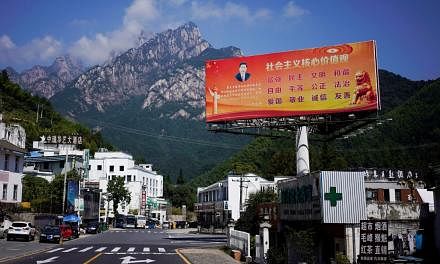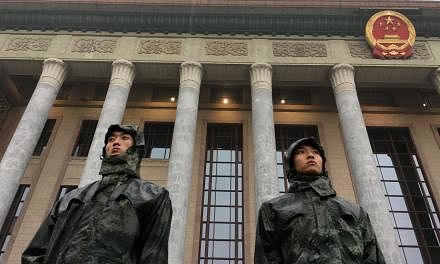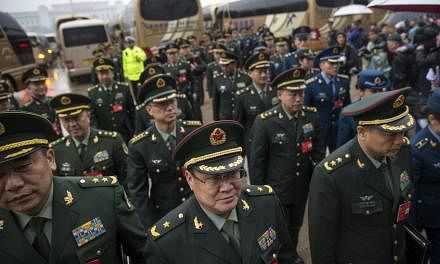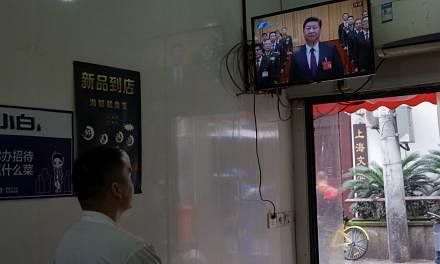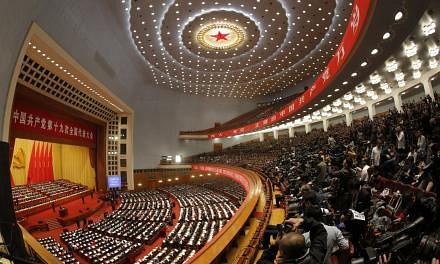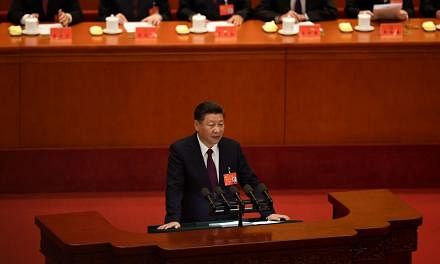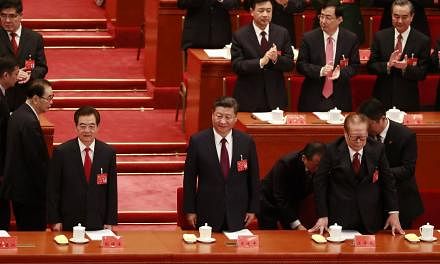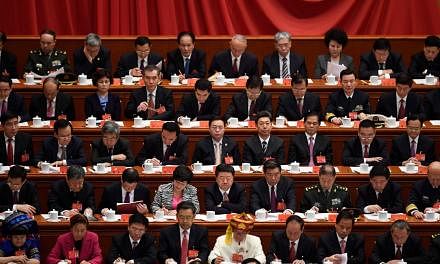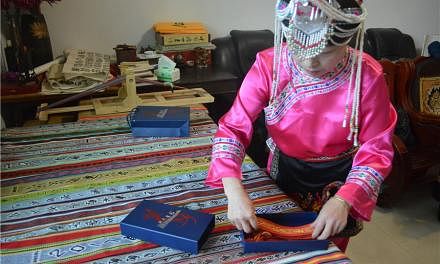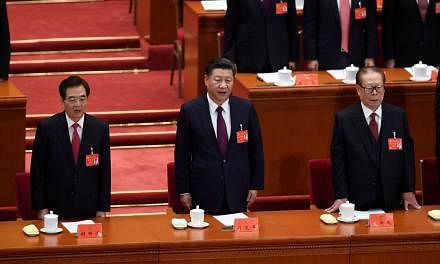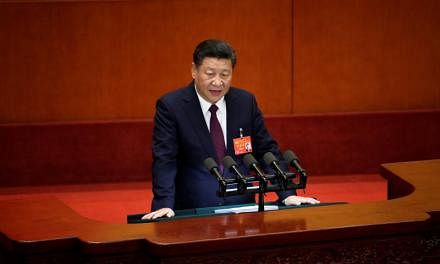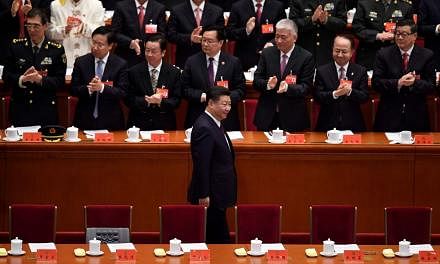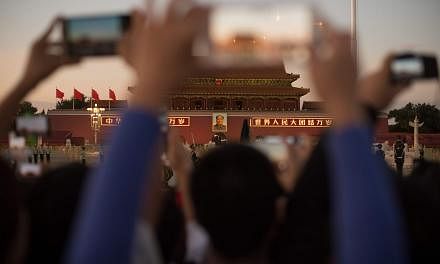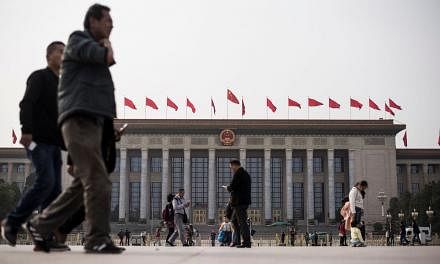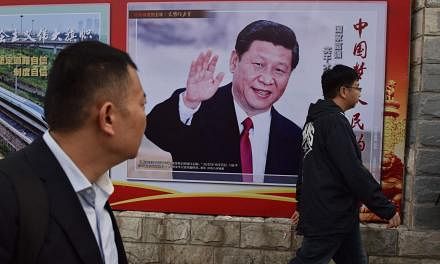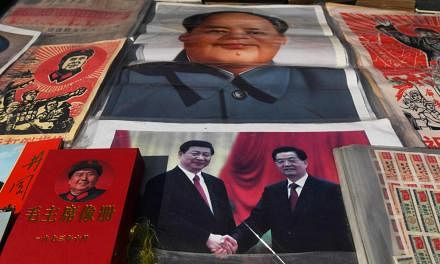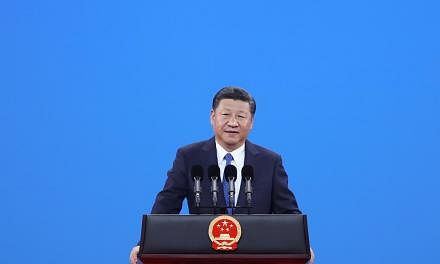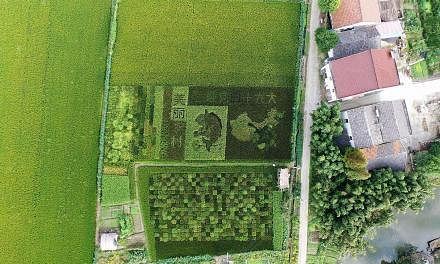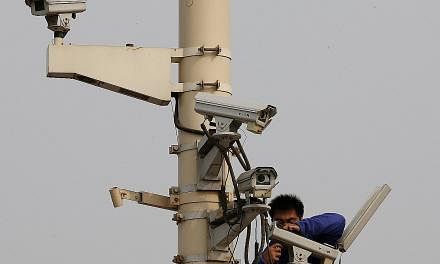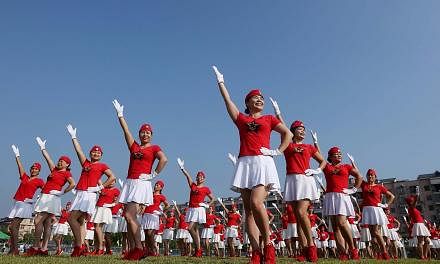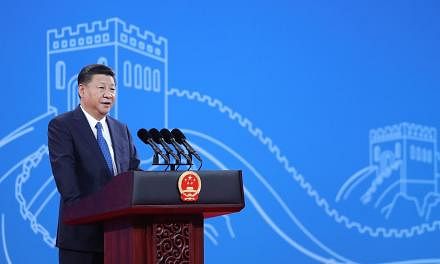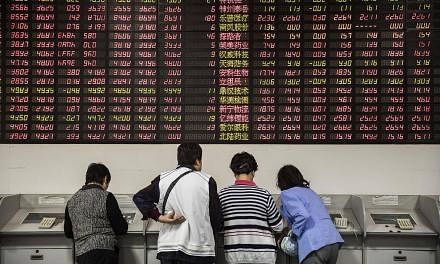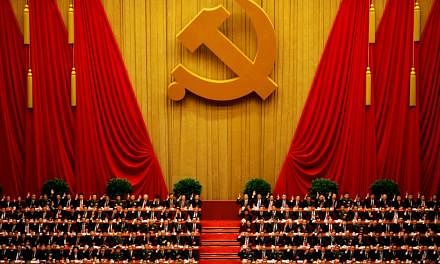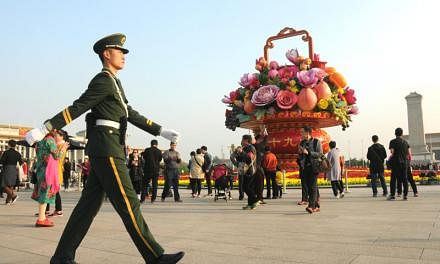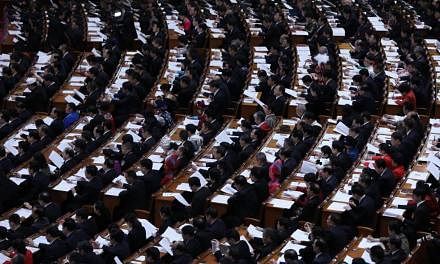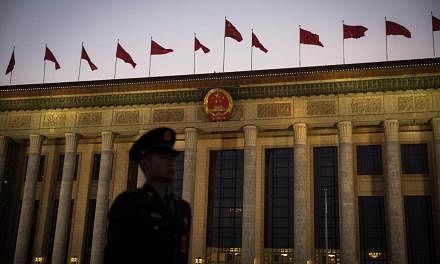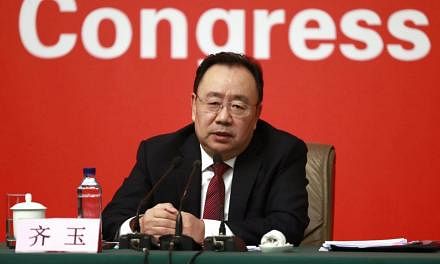Until early last year, Madam Peng Xiaying and her husband were eking out a hardscrabble existence in their postcard-perfect but remote home in Shenshan, deep in China's old revolutionary heartland.
The hamlet was the last in the Jinggang Mountain area to be linked to the outside world by paved roads in 2005. Jinggang Mountain is known as the birthplace of the Chinese Red Army, today's People's Liberation Army (PLA), and the cradle of the Chinese Revolution.
The couple got by on about 9,000 yuan (S$1,900) a year, a third of which came from chopping wild bamboo, with the rest from poverty aid and rearing of goats provided by the local government.
But they found their lives transformed after President Xi Jinping visited Shenshan during last year's Chinese New Year, a Chinese Communist Party (CCP) tradition he has kept, in part to promote his government's efforts to eliminate poverty.
Since coming to power in 2012, Mr Xi has made eradicating poverty a key metric for achieving xiao kang - an all-round moderately prosperous society - by 2020, just before the centenary of the founding of modern China.
This entails lifting more than 30 million people above the poverty line - fixed at 2,300 yuan a year - in the next three years through a number of measures, such as micro-credit loans, dibao (minimum livelihood guarantee) payments, home improvements and job training.
Mr Xi's Shenshan visit had local officials pulling out all the stops to better the lives of the residents. Madam Peng, 50, and her neighbours' brick homes were re-roofed, masonry reinforced, and new sanitation systems installed.
"For the first time, many of us have tap water in our homes," said Madam Peng, who had photos of Mr Xi visiting her home plastered on the wall, next to a portrait of former chairman Mao Zedong.
But the starkest change was the sudden influx of tourists to Shenshan, many dressed in the grey-blue Red Army uniforms of yore.
RENEWED INTEREST IN HISTORY
Experts say interest in China's revolutionary past - or "red tourism" - has soared in recent years because of a clutch of important anniversaries that has raised public awareness and evoked nostalgia.
These included the 90th anniversary of the founding of the CCP in 2011, and the 80th anniversary of the end of the Long March in 2015.
This year marks the 90th anniversary of the Nanchang uprising and the birth of the PLA, a double bonanza for Jiangxi as both events took place in this province.
Other popular destinations include Mao's birthplace of Shaoshan in Hunan province, and Zunyi in Guizhou, site of the Zunyi Conference where he was elected leader of the CCP for the first time.
Jinggangshan city, which houses a museum chronicling the CCP's birth and early struggles, sees about a million visitors a year, a number that in recent years has been growing at 30 per cent a year, said deputy mayor Liu Hongping. Visitors come to see where CCP luminaries like Marshal Zhu De and Mao were holed up for more than a year, and where they fended off multiple encirclement campaigns by Kuomintang forces to wipe them out.
About 98,000 made the hour-long journey on winding mountain roads to Shenshan last year after Mr Xi's visit, compared to "virtually zero" visitors in 2015, said Maoping township deputy party secretary Xiong Bin. He expects this number to rise to 130,000 this year. "We have widened the roads leading from the city to Shenshan so that bigger buses can come more easily," he said.
Madam Peng, spotting a business opportunity, started a small restaurant in her home, while her husband began making handicrafts using local bamboo.
"Visitors want to try the ciba (mua chee) that President Xi ate, and our local delicacies such as giant salamander," she said. "Running our little lodge last year, my daughter and I made 160,000 yuan."
Steady tourist arrivals also led fellow villager Zuo Conglin, 65, to give up subsistence farming for bamboo carving. He now makes about 1,500 yuan a month from selling bamboo cups and vases inscribed with ancient Chinese words of wisdom, on top of income he gets from being part of a farmers' cooperative.
"What the government and President Xi have given us is business opportunity, and the opportunity to do something besides back-breaking farming," he said.
But, as farming remains a mainstay in the countryside, the government has also deepened rural reforms, including land ownership as well as contract and management rights. The result is that rural residents have seen their income growth outpace that of city folk in recent years, with those in poverty-stricken areas in particular seeing the fastest annual growth at more than 10 per cent last year, Agriculture Minister Han Changfu said last month.
"Secretary Xi has stressed that whether or not we achieve moderate prosperity hinges on how well we do in the countryside," he said at a press conference ahead of the 19th Party Congress. "So how to continue raising farmers' incomes is something that has to be solved, and goes to the core of our duties."
Tourism dollars, together with strengthened poverty-alleviation programmes, meant that Jinggangshan city was among the first group of cities that was able to declare this year that they had shaken off poverty, said Mr Xiong.
DOUBTS OVER LASTING IMPACT
Whether red tourism can be a lasting growth engine is uncertain.
For one, the "Xi effect" is likely to wear off eventually, just as it has for other rural areas such as Luotuowan, another low-income mountain hamlet, 180km from Beijing.
Mr Xi's visit there in 2013 drew international media attention, including from the New York Times, that led to a spike in curiosity tourism, but interest faded soon after.
The popularity of red tourism is also likely to wane once the anniversary celebrations end, which is why local governments are rushing to maximise the publicity.
This month, Jinggangshan city marks the 90th anniversary of the creation of China's first revolutionary base with a commemorative officials' meeting, a wreath-laying ceremony at a martyrs' cemetery, among other activities. "We are also welcoming the 19th Party Congress, so we have made special arrangements for a major celebration," said Mr Liu.
And while Jiangxi is hoping to develop its agriculture and eco-tourism industries by building on its reputation as one of China's greenest and most ecologically-diverse regions, Jiangxi Development and Reform Commission director Ning Quan stressed it is not putting all its eggs in the tourism basket.
The province, one of the world's largest producers of rare earth metals, has attracted a slew of high-technology companies, including lithium battery and medical equipment makers, he said. These companies now make up more than a fifth of the province's business income.
In August, Chinese tech giant ZTE said it plans to build a new smartphone factory in Jiangxi that is expected to generate 10 billion yuan in annual revenue.
Said Mr Xiong: "The end goal for us is not just alleviating poverty, but that through technical assistance and education our people will lead better lives."
